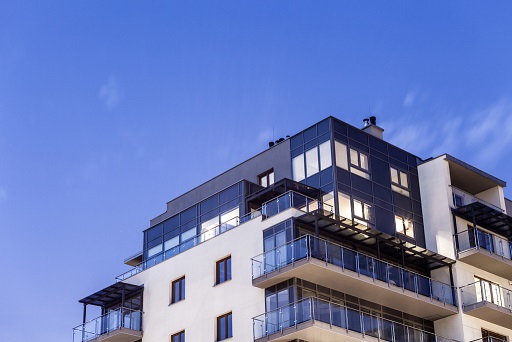A condominium, often referred to simply as a “condo,” is a type of residential property that represents an alternative to traditional single-family homes and apartment living. Unlike standalone houses, condos are individually owned units within larger multi-unit buildings or complexes. Each condo owner has full ownership of their specific unit but shares joint ownership with the other residents for common areas such as hallways, lobbies, swimming pools, and recreational facilities.
In recent years, condominium living has surged in popularity due to several appealing factors: convenience, lower maintenance responsibilities compared to owning a house, and access to upscale amenities that might be cost-prohibitive on an individual basis. Additionally, condos are frequently found in urban centres where land is scarce and property values can be exceedingly high. This combination makes them an attractive option for young professionals seeking proximity to workplaces and social hotspots without the upkeep demands of a single-family home. Visit the link to see more: https://www.newlaunchesreview.com/category/jurong/.
Besides these practical benefits, condo life fosters a sense of community engagement among neighbours while providing enhanced security features typically managed by homeowners’ associations (HOAs). These groups often handle everything from building maintenance to enforcing rules aimed at maintaining quality-of-life standards for all residents.
When shopping for https://www.canalesfurniture.com/, you have a wide range of options, from established retailers to niche boutiques.
The Allure of Luxury Condominium Living
Investigating the various definitions and interpretations of ‘Luxury’ involves examining its multifaceted nature, from opulent physical goods to exclusive experiences that represent status, comfort, and refined taste in diverse cultures.
Global trends in condo ownership are reflected through statistical data, highlighting significant growth patterns, regional differences, and changing demographics that influence market dynamics and property investments across various countries.
Choosing the right location for a luxury condo is crucial as it enhances property value, ensures access to premium amenities, and offers residents an elevated lifestyle with exclusive surroundings.
Understanding What Makes a Condo “Ideal”
Evaluating an ideal condo involves considering location, amenities, building quality, maintenance costs, and security. Proximity to essential services and a harmonious community atmosphere also significantly influence the condo’s desirability.
The integration of luxury and convenience enhances sophisticated lifestyles, blending opulence with practicality. This fusion elevates daily experiences, ensuring comfort while maintaining high standards of elegance and ease in everyday activities.
The Crucial Considerations for Choosing a Luxury Condo
Choosing a reputable developer ensures quality, reliability, and timely delivery. They bring expertise, and adherence to best practices, and minimize risks of project failure or costly mistakes, ultimately bolstering client trust and satisfaction.
High-quality construction is essential for safety, durability, and long-term value. It ensures structures can withstand extreme conditions, reduces maintenance costs, and enhances overall performance and reliability across various applications.
Luxury-focused properties offer premium amenities and sophisticated features, providing exceptional comfort and convenience. Their comprehensive array of top-quality services ensures an unparalleled lifestyle experience for discerning residents seeking excellence in their living environment.
Exceptional customer service combined with proficient building management creates a welcoming and efficient environment, enhancing tenant satisfaction, fostering loyalty, and ensuring smooth day-to-day operations for both residents and property managers.
Financial Aspects When Buying Luxury Condos
Understanding the pricing structures of luxury condos involves analyzing factors like location, amenities, floor plans, and market demand, ensuring buyers pay a premium for exclusivity and high-end living experiences.
Having a clear and realistic budget is crucial for effective financial management. It helps track expenses, prevents overspending, and ensures funds are allocated wisely to achieve financial goals successfully.
Luxury condos offer attractive investment opportunities due to high demand, prime locations, and strong resale values. Their modern amenities and exclusivity can provide substantial returns for discerning investors focusing on upscale real estate markets.
To successfully negotiate a price, research thoroughly beforehand, be confident yet polite, know the value of what you’re buying or selling and stay willing to compromise for a mutually beneficial agreement.
Legal and Documentation Aspects
Critical legal issues to address include understanding contract obligations, ensuring regulatory compliance, protecting intellectual property, and navigating employment laws. These elements are vital for safeguarding your business and avoiding potential disputes.
Carefully reviewing contracts and agreements is crucial to avoid misunderstandings, identify potential risks, and ensure all terms are fair and understood. This process protects parties’ interests and minimizes legal issues.
Real estate agents facilitate the documentation process by coordinating required paperwork, verifying details for accuracy, and ensuring timely completion. They guide clients through complex legal forms to ensure a successful transaction.
The Buying Process of Luxury Condos
Locating a reliable real estate agent is crucial as they offer invaluable market insights, adept negotiation skills, and personalized guidance to ensure a smooth transaction, whether you’re buying or selling property.
Evaluating the premises involves carefully examining every aspect to ensure everything is in order. This includes checking structural elements, safety features, and overall condition for any potential issues or necessary repairs.
Securing the agreement is crucial for business success, requiring clear communication and mutual understanding to finalize terms, ensuring both parties are satisfied with the outcome and committed to their responsibilities.
The process of relocating involves carefully organizing and packing belongings, coordinating transportation logistics, and ensuring everything is safely moved to the new place, creating a fresh start in a different home.
Post-purchase considerations
Keeping the condominium well-maintained and efficiently managed involves regular upkeep, prompt repairs, adhering to regulations, and clear communication with residents to ensure a comfortable living environment for all.
Becoming part of the condo community offers a unique blend of companionship and shared responsibilities. Residents enjoy mutual benefits, ranging from well-maintained amenities to a supportive network of neighbours, enhancing their living experience.
Effectively manage potential disputes by addressing issues promptly, fostering open communication, and seeking resolutions through negotiation or mediation. Prioritize mutual respect and understanding to maintain positive relationships and prevent conflicts from escalating.
FAQs
What is the definition of a condo?
A condo, or condominium, is a private residential unit within a larger building or community where individuals own their units while sharing common areas and amenities with other residents.
Why is a condo different from an apartment?
A condo, typically owned by an individual, differs from an apartment which is usually rented. Condos offer ownership benefits and potential investment value, while apartments provide flexibility without long-term financial commitments.
What is a condo or apartment?
A condo or apartment is a residential unit within a larger building. Condos are individually owned, while apartments are typically rented from a single owner or management company that owns the entire complex.
What the heck is a condo?
A condo, short for condominium, is a privately owned unit within a larger building or complex where residents share common areas and amenities but own their individual living spaces.
Also Read:- Five Tricks for Making Your Money Work for You



